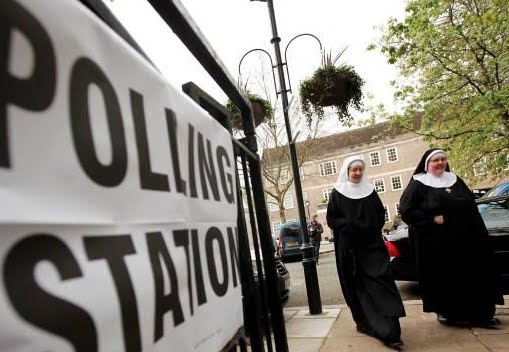Recently, the Vatican asked bishops from around the world to gather input from their parishes. The Vatican wanted parishioners’ views on such issues as: the importance of the family, cohabitation, divorce and remarriage, same-sex marriages, openness to life, and pastoral approaches to all of these issues.
Having spent over a decade mining student evaluations for information and just completing a broad quantitative survey, here are five things to keep in mind about polls and surveys.
1. Surveys and polls provide “reception” information. It lets you know how people perceive what you are doing. Do they like it? Do they not like it? Do they prefer this way of communicating it or that? If one is a communicator—like a teacher or a pastor—this is an essential piece of feedback. It provides necessary information for improvement. Without it, you will never know if what you are saying is being heard correctly or even heard at all.
2. Surveys and polls do not provide nuance. People are averse to change, so they will typically not like (no matter how true and good they might be) new policies, challenging teachings, or information that threatens their point of view. As a result, it is easy for people, especially in polls, to conflate “dislike” with “new” and “different” as well as “like” with “agree” and “familiar”.
3. Surveys and polls do not tell you what you should be doing. In teaching, student evaluations clearly (sometimes painfully so) communicate what is not working, but, unfortunately, they do not tell you how to do it better. Teachers have to draw on their own knowledge of the field, experience, and colleagues to figure out how to improve. Student evaluations help assess an approach and so are essential for improving communication, even if they do not indicate the best way forward.
4. Surveys and polls engage people. Providing feedback, especially if they see its impact, draws in people. It gets them to care about what is being asked. If they are drawn in, they are more likely to reflect on and engage an issue. They are more likely to apply it to their own lives. It is why students tend to remember more of what they say and what they write than what a teacher says or writes. (This is why class participation, exams, and papers are so essential to teaching.)
5. Surveys and polls provide helpful guidance for leaders. They can help leaders attend to those for whom they are responsible and become more effective in doing what they are called to do. In The Rule of Saint Benedict, the abbot is likened to a shepherd that cares for sheep, a doctor that restores patients to health, a father who guides his children, a steward that manages a household, and a teacher that hands on knowledge to others. Each of these cases makes it clear that abbots are to adapt themselves to the needs of the monks, and, The Rule is explicit that abbots must “listen” to their monks to do this. At their best then, surveys and polls can help leaders to listen.
Together, these points indicate the way polls and survey can bring people together, make them more attentive to each other, and become better communicators. Obviously, this is not everything, but, for Christians, it can help in the preaching of the gospel. It can help us understand one another a little better, a step in the call to love one another as God has loved us.




Hey Jason,
This is great stuff. You do an excellent job of explaining how and why polls are indeed helpful, but also ways in which they are not. Between this and the recent document by Adolfo Nicolas SJ (superior general of the Jesuits) on leadership and Jesuit higher education, it is pretty clear that both teachers and pastors should consider periodic polling ESSENTIAL for their ministry.